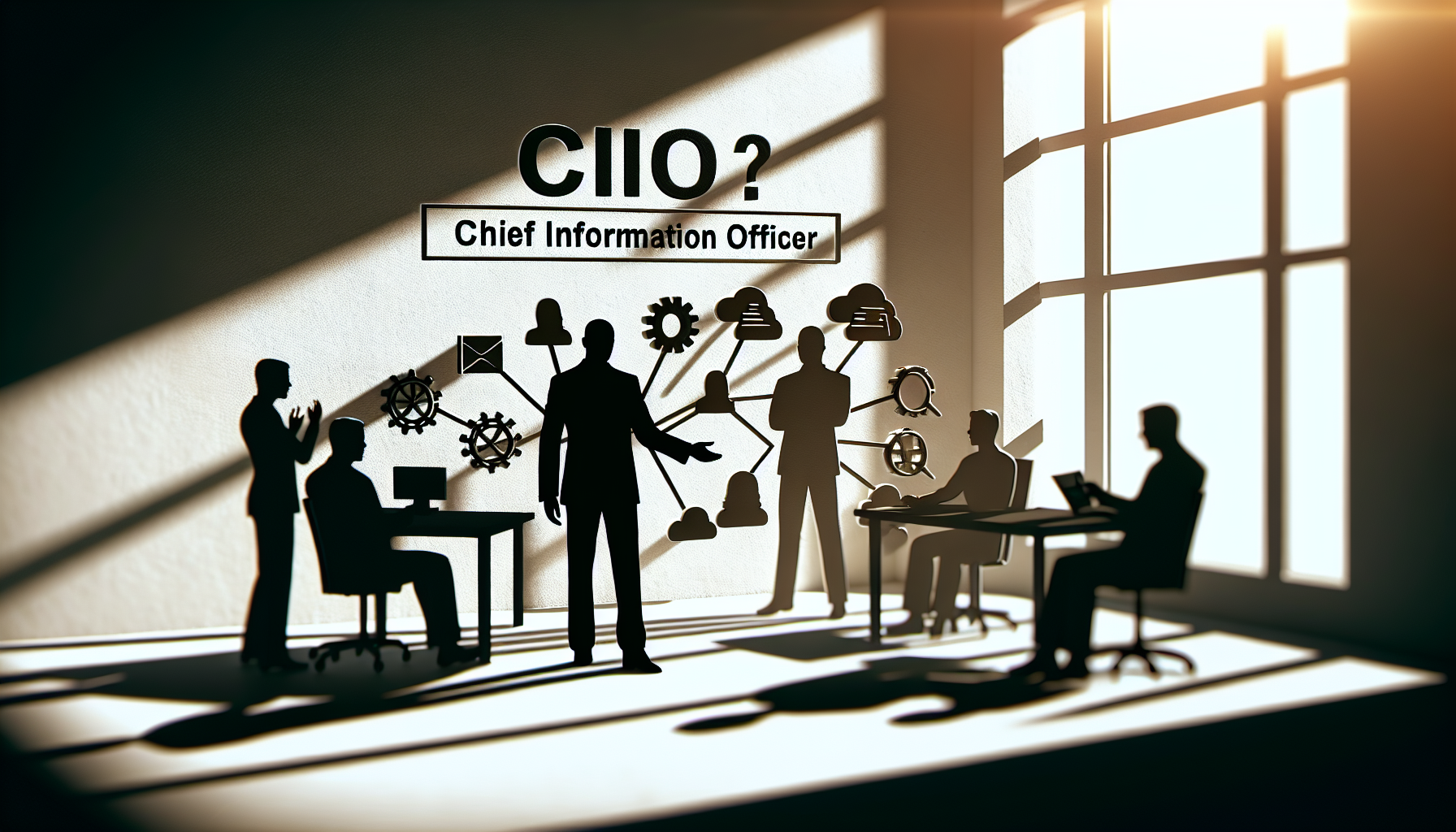Role and missions of the Director of IT Services
The essential role of the Director of IT Services
THE Director of IT Services, also known as CIO Or Director of the information systems, holds a strategic place within modern companies. In the digital age, where information and technology have become the core of professional activities, understanding one’s responsibilities and missions is essential. This article provides a complete portrait of the function and importance of the CIO.
In a context where the information technology evolve at a breathtaking pace, the CIO must demonstrate strategic vision in order to guarantee the alignment of the information system with the general objectives of the company. In this regard, he wears several hats and plays a pivotal role in the digital transformation of the structures he manages.
Strategist and visionary
The CIO is responsible for developing and implementing the company’s IT strategy. It determines the necessary investments, chooses the technologies and solutions adapted to the needs and challenges of the organization. In addition, he anticipates market developments and technological innovations likely to impact his business.
Resource Manager
The management of resources, whether human, material or financial, is an integral part of the CIO’s missions. He plans budgets, manages service contracts and ensures the optimization of IT operations costs. The CIO also takes care of the recruitment, training and supervision of IT teams.
Guarantor of Information Security
Data security is a major concern in the CIO profession. He is responsible for ensuring the protection of company information against cyber threats and implementing effective security policies. He must also ensure compliance with regulations in force, such as GDPR (General Data Protection Regulation).
Facilitator of digital transformation
The CIO plays a key role in accelerating the digital transformation of their company. It is the catalyst that facilitates the integration of new technologies, such asArtificial intelligence where the Cloud computing, and which contributes to redefining business processes to gain efficiency and productivity.
Advisor and business partner
In addition to his technical responsibilities, the CIO must be able to interact with other departments in the company and understand their specific needs. As a true partner, he advises and supports professions in their use of IT tools.
Technology watcher and innovator
Constant technological monitoring is essential to remain competitive. The CIO must be on the lookout for the latest innovations, evaluate their relevance and integrate them if they help increase the company’s added value. He must also promote a culture of innovation within his teams.
THE Director of IT Services is a crucial link in the success and competitiveness of businesses in the digital age. With missions extending from strategy to operations, including management and security, the CIO must combine technical skills, strategic vision and leadership qualities to successfully carry out his mission.
Key skills and training of a CIO

Fundamental technical skills
The CIO must, above all, have a solid understanding of information technology. This includes mastery of IT infrastructure (networks, servers, storage), knowledge of platforms and software used in the company, as well as aspects related to IT security. He is also expected to have an understanding of development methodologies, includingAgility, and to know the latest trends such as cloud computing, artificial intelligence or big data.
Project management and change management
THE project management is an essential skill for any CIO. He must be able to plan, budget and carry out IT projects, often crucial to the company’s strategy. In addition, the CIO must excel in change management, by anticipating the repercussions of new technologies on the company’s businesses and by supporting teams in the evolution of practices.
Essential soft skills
A CIO must demonstrate excellent communication skills, both written and oral, to popularize complex technical concepts to non-specialists. THE leadership is also fundamental to inspire and guide IT teams. The ability to team working is crucial, as projects often involve close collaboration with various departments within the company.
Academic and continuing education
Traditionally, CIOs have a computer engineering degree or a master’s degree specialized in information systems. However, given the speed at which technologies evolve, continuing education is necessary throughout one’s career. THE professional certifications such as the PMP (Project Management Professional), ITIL (Information Technology Infrastructure Library) or CISA (Certified Information Systems Auditor) are valuable assets.
Understand business and strategic issues
Beyond technical expertise and project management, a CIO must understand the challenges strategic and commercial of the company. This allows it to better align the IT strategy with the overall objectives of the organization and thus contribute to its growth and innovation.
Conclusion: A constantly evolving role
The role of CIO is constantly evolving and requires continuous learning. With the expansion of digital and the emergence of disruptive technologies, the skills and training of CIOs must constantly adapt. To succeed, it is essential for the CIO to balance technical know-how, managerial qualities and strategic vision.
The challenges facing the CIO

The role of an Information Systems Director (ISD) is constantly evolving in light of technological progress and digital transformations that are redefining the business environment.
Today, a CIO must juggle innovation, data security management and adaptation to new trends, while supporting the overall strategy of their company. Let’s examine together the major issues and challenges these professionals face.
Digital transformation and continuous innovation
One of the major challenges for the CIO is digital transformation of his business. He must be able to analyze market trends, such as artificial intelligence or the Internet of Things (IoT), and evaluate how to integrate these technologies to improve the company’s processes and services. This innovation is at the heart of competitiveness and allows the company to stand out.
Cybersecurity and data protection
The increase in cyberattacks makes the cybersecurity more important than ever. The CIO must ensure the protection of company information, which includes implementing appropriate security strategies, managing risks and complying with regulations, such as GDPR. It is about customer trust and some reputation of the company.
IT-business strategy alignment
The CIO must not only be a technician, but also a strategist capable ofalign IT with business objectives of the company. This involves in-depth knowledge of business processes to deliver IT solutions that add value and support business development.
Managing change and organizational culture
With the introduction of new technologies, the CIO must manage change within the organization and promote a digital culture. This involves training employees, adapting work processes and promoting innovation as a central value.
Cloud Computing and agile infrastructures
The use of Cloud computing has increased considerably, offering businesses greater flexibility and responsiveness. The CIO must ensure that the IT infrastructure is not only agile, but also scalable and secure to effectively meet the changing needs of the business.
Cost management and return on investment
Cost control remains an ongoing challenge. The CIO must guarantee that the IT investments made are judicious and offer a return on investment positive. This requires rigorous budget management and continuous evaluation of the performance of information systems.

In conclusion, the function of CIO has evolved considerably over the past decades. Today, it requires a combination of technical, managerial and strategic skills. CIOs are now key players in the digital transformation of companies, being the architects of IT infrastructure and guarantors of innovation. In the digital age, they play a valuable and indispensable role for the success and sustainability of organizations in an increasingly technology-driven environment.

Leave a Reply